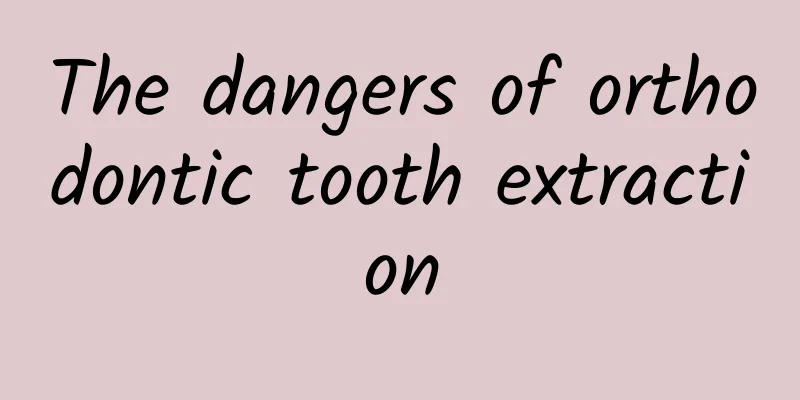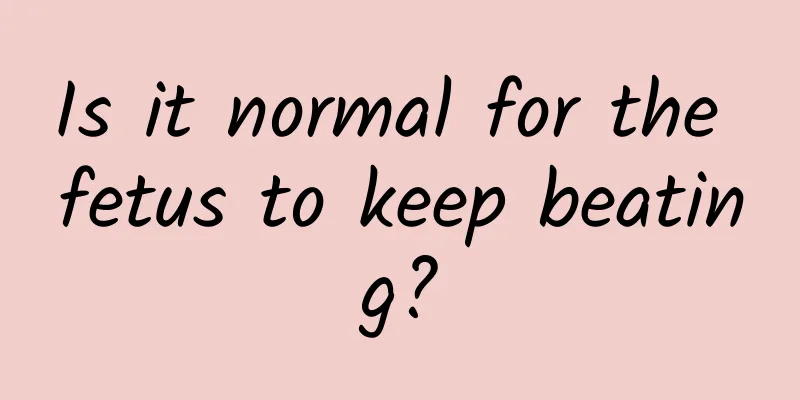Headache and runny nose mean cold, this is just a rumor

|
In daily life, if symptoms such as headache and runny nose occur, people always think that these are signs of a cold. In fact, this may be a "false cold" phenomenon. Antibacterial drugs, antiviral drugs, chemotherapy and targeted anti-tumor drugs, anti-epileptic drugs, antidepressants, antihypertensive drugs, antiarrhythmic drugs, anticoagulants and thrombolytic drugs can cause false colds, and people need to make correct judgments. 1. Headache and runny nose mean cold, beware of rumors When you have a headache, fever and runny nose, your first reaction is that you have a cold. In fact, some "false colds" are caused by taking medicines, called "drug-induced influenza-like syndrome". This issue was raised by scholars as early as 1967. Initially, some people developed flu-like symptoms after being injected with interferon, and the number of reports gradually increased. 2. Drugs that can cause "false colds" include: 1. Antibacterial drugs: streptomycin, penicillin, cephalosporin, erythromycin, amphotericin B, fluconazole, sodium para-aminosalicylate, rifampicin, ethambutol, isoniazid, furazolidone; 2. Antiviral drugs: polyinosin, interferon; 3. Chemotherapy and targeted anti-tumor drugs: retinoic acid, dacarbazine, camptothecin, cephalosporin, asparaginase, rituximab, trastuzumab, cetuximab, gemcitabine, dacarbazine; 4. Antiepileptic drugs: gabapentin, lamotrigine; 5. Antidepressants: amitriptyline, imipramine, fluoxetine, paroxetine, citalopram, escitalopram, doxepin; 6. Antihypertensive drugs: hydralazine, losartan, valsartan, irbesartan, telmisartan, olmesartan medoxomil, candesartan cilexetil, eprosartan, quinapril, benazepril; 7. Antiarrhythmic drugs: amiodarone, carvedilol; 8. Anticoagulant and thrombolytic drugs: heparin, staphylokinase, streptokinase, urokinase, agkistrodon, alteplase, reteplase; 9. Immunomodulators: thymosin, thymopentin, aldesleukin, etanercept, infliximab; 10. Drugs that inhibit gastric acid: cimetidine and ranitidine. If "drug-induced influenza-like syndrome" occurs after taking the medicine, it may indicate that the human body has a better or more normal immune response after taking the medicine. Therefore, if cold-like symptoms occur after long-term use of the above-mentioned medicines, treatment is generally not required as long as the symptoms are mild. |
<<: You don't need to take medicine for headaches, massaging these parts is the best
>>: Headache and rapid heartbeat may be caused by these reasons
Recommend
What is tricuspid regurgitation?
The tricuspid valve is an important component of ...
What are the hazards of smog?
As the times develop and technology advances, our...
How to treat heart failure? Etiology treatment is key
Heart failure normally refers to heart failure, w...
Does Rhodiola Rosea nourish the kidneys?
Can Rhodiola rosea nourish the kidneys and streng...
How to stop itching when urticaria is very itchy? These methods are quick and effective
I believe many of my friends have heard of diseas...
Three major indicators of heart failure
For patients with heart failure, timely treatment...
What to do if the burn scabs and suppuration
Burns are an inevitable problem in daily life. As...
How is moxibustion for weight loss therapy?
Moxibustion is actually a local warm stimulation ...
Elderly people vomiting and fast heart rate
We all know that when people reach old age, they ...
What should I do if I have low blood pressure and poor sleep?
With the increasing work pressure, many people do...
What to do if it itches down there? Here are some tips for treating itching
Many people in life may experience symptoms of pr...
What is shingles
Everyone knows that our skin has the most contact...
What causes itching, redness and swelling of the male urethra? what to do
Male urethral itching is a relatively common symp...
How to detoxify by drinking Chinese medicine?
Traditional Chinese medicine is the quintessence ...
What are the main functions of Bupleurum?
Bupleurum is a very good traditional Chinese medi...









